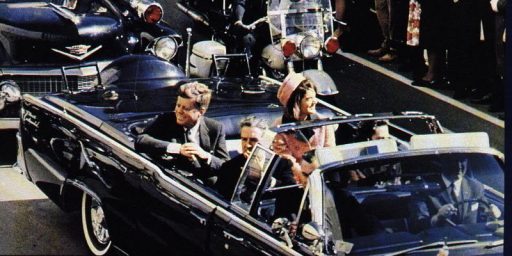JUDGES, PRESIDENTS, AND MOTORIZED SNOWCRAFT
Kevin Drum takes delight in a federal judge’s order overturning a Bush executive order overtuning a Clinton executive order limiting snowmobiles in Yellowstone. I heard about this on NPR this morning and was rather perplexed: Of course Bush’s decision was politically driven. So was Clinton’s. That’s what politicians do: They make political decisions. What I don’t understand is why that matters one whit. Kevin agrees, asking:
What’s wrong with being politically driven? Seriously. Surely the Bush administration is allowed to make politically driven rules if it wants to?
One would think.
It seems to me that either presidents have the power to issue decrees on snowmobiles in public parks or they don’t. If they do, then the judge’s order is out of bounds. If they don’t, then Clinton had no right to issue a policy directive here to be overturned, which would mean Bush’s policy should be essentially upheld, since both directives would be invalid and the status quo ante–the absence of Clinton’s order–would be in place.
Since I don’t own a snowmobile and have no plans to travel all the way across the country in order to go to a park–let alone go there to ride a snowmobile around–I haven’t given the merits of the policy itself much thought. Frankly, I’d just assume not have a bunch of yahoos riding around on noisy vehicles while I’m trying to eat my picnic lunch. (Unless bears are about to attack, at which point the snowmobile might scare them off.)






My commenters suggest that Congress enacted certain rules and parameters for making these kinds of regulations, and the executive is bound to follow them. Scientific study is one of the parameters, while political expediency isn’t.
I don’t know if this is the case, but it sounds like a pretty reasonable possibility. Perhaps we’ll find out if anyone ever reads the decision.
That actually makes some sense. Unfortunately, most lower courts don’t produce written opinions.
—